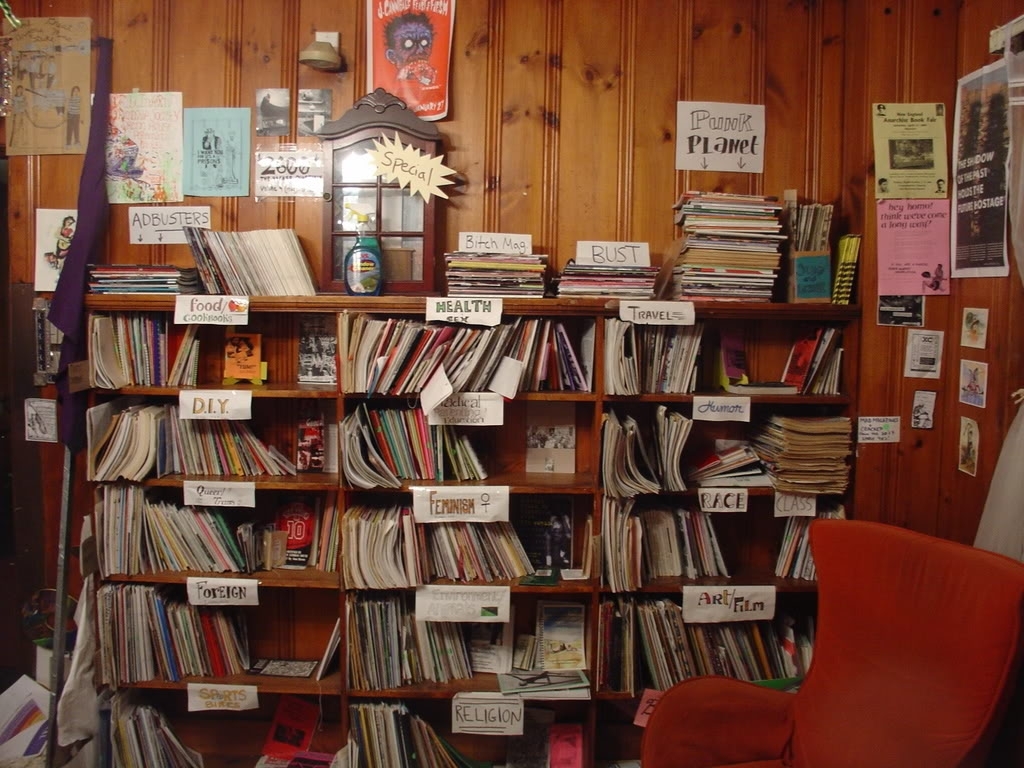Photo Courtesy of Wikimedia Commons.
Look back over the last 10 years, and you’ll spot a resurgence of the old Do-It-Yourself ethos. From self-published zines to craftivism, a new generation is being encouraged to challenge society through handmade items.
Zines (pronounced ‘zeens’), in particular, have found new homes both online and in community-based groups in cities around the world. It will come as no surprise, then, that Ottawa boasts a thriving and encouraging zine community of its own.
So, what is a zine? Open up the American Heritage Abbreviations Dictionary and you’ll find out they’re “an inexpensively produced, usually underground, fan magazine.”
These zines can be about anything, from bike repair tips to cheap date ideas to horror fiction, and there are quite a few approaches you can use to create one.
Typically, a zine is made by cutting and pasting art, prose and poetry onto a folded piece of A3 sheet paper. This paper can be then Xeroxed and distributed through mail, Etsy stores or distribution events (such as Ottawa’s own Zine Off!) that cater to zine creators and readers alike.
Zines can also be made by using a program like Photoshop and can be distributed digitally. These are most often referred to as E-Zines.
Zines started as a form of expression during the 1970s, accompanying the punk movement.
With the rise of the 1990s Riot Grrrl movement, the popularity of zines soared. Women and marginalized groups began using zines to share similar political ideas, as well as creators’ experiences with sexism, sexual assault, mental illness, racism and abuse.
Zinesters have full artistic freedom over their zines. This factor is particularly appealing to those who feel that their content would not fit into a mainstream publication. Zines are, in part, a large form of alternative media.
Britt Neron, writer of Ottawa zine Sad Weekends, encountered her first zine at a punk show in the mid 2000’s.
“The fact that people completely unassociated with any kind of publisher or media outlet were putting their thoughts out there independently, and in a DIY fashion was exciting and refreshing to me,” Neron says. “Also, the cut-and-paste format of many zines, where pretty much anything goes, excited the inner crafter in me. “
Neron began creating her first zine years later, but was worried that her voice wasn’t worth hearing.
“As a woman, I’ve been socialized to always make myself smaller and quieter,” she says. “So I started writing zines as a small and personal act of defiance in this way, and in the process, I found a voice I didn’t know I had.”
Ottawa zine newcomer Naomi Fraser first heard about zines from friends who noticed the zine racks on display in Pressed café and the local punk venue Gabba Hey.
“I was really into the idea because I never had any way to share my writing,” Fraser says. “I was also excited by the idea of creating something that was completely in my control.”
Ottawa hosts many events that cater to the zine community. As previously mentioned, the Ottawa Zine Off! is an event hosted by writer and poet JM Francheteau. The event challenges writers to create a zine in the span of one month, and encourages the creators to share and trade their zines at the time of the event.
Most recently, the Ottawa Makers Market put up a community zine table for zinesters to sell their work.
Fraser finds zines empowering because they give zinesters the opportunity to share their experiences, good or bad.
“Zines give people a safe space to deal with trauma and topics that they might not be as comfortable talking about aloud,” she says. “It’s a really great thing to have something that you can be proud of coming out of [a bad situation].”
Neron echoes this.
“The single most empowering thing about zine writing, however, would be the people who have chatted with me after reading my zines who said my writing made them feel less alone, or that they didn’t realize someone so ‘together on the outside’ could be struggling, too,” she says. “I wish we could be more open, as a whole, about the hard stuff, because I think we’d all feel a little less alone.”

